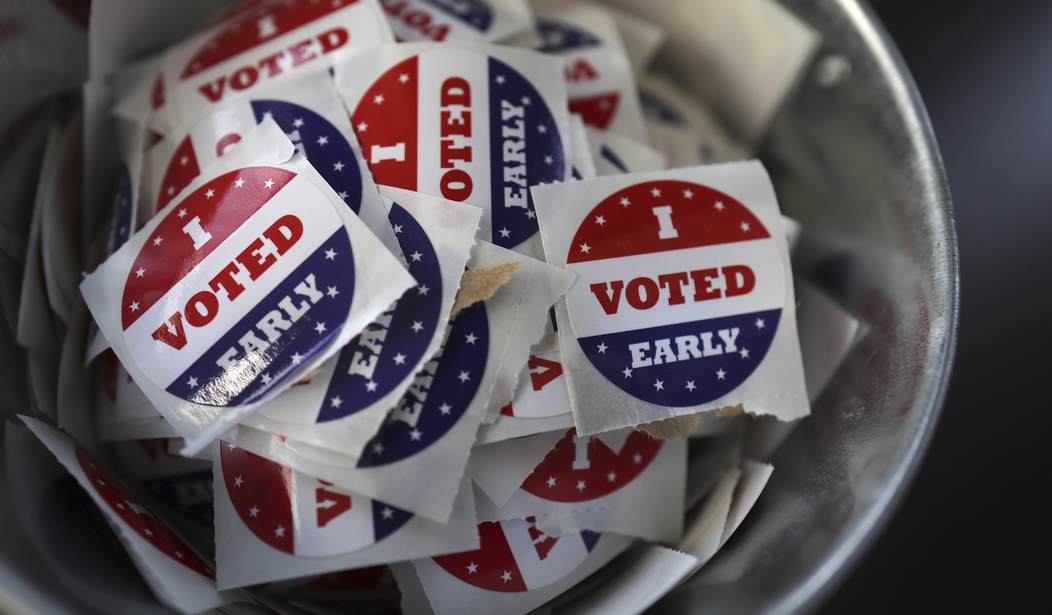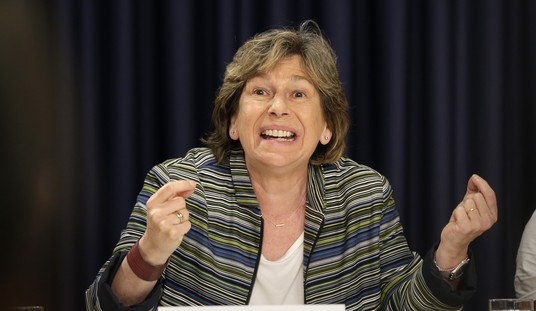There used to be an axiom in politics that high voter turnout always favored the Democrats because it meant that more minorities and other demographic groups that favored Democrats showed up to vote.
That's simply not true today. The realization that fewer people voting is better for Democrats upends 60 years of Democratic strategy about maximizing voter turnout of all demographic groups.
Previously, the thinking was that increasing voter turnout for all groups was good for Democrats because even if GOTV efforts brought a few more Republicans to the polls, the massive numbers of Democratic voters would swamp any opponent.
In fact, the data on recent special elections shows that the fewer people who show up to vote, the more likely the Democrats are to win. While special elections are a fraught measurement of anything, given the numerous local issues at play, there's enough raw data to draw some careful conclusions.
"Democrats are now the party that performs best among the people who are most likely to vote," notes Democratic analyst Matt Yglesias. That matters in special elections when only the most committed voters show up to vote.
The counter to this advantage is that those least likely to vote are solidly Republican.
"New information shows definitively that the people who didn’t vote in 2024 are an even more Trump-friendly group than the people who did vote, and that untargeted voter registration and mobilization schemes are likely to help Republicans rather than Democrats," Yglesias writes.
One implication of Democrats being less likely to vote relates to some pretty banal aspects of tactics and political mechanics. My friend Aaron Strauss does analytic work to help Democrats win, and he’s been preaching for years that donors need to become more skeptical of non-partisan voter-registration drives. Donors like to fund these because they can make tax exempt contributions, and it sounds a lot more high-minded than investing in partisan politics, even while de facto advancing partisan goals.
But the new turnout climate and new registration data is causing Strauss’s long-time antagonists to change their tune on this:
The strategic implications for Republicans are startling. The field has flipped, and Democrats are finding themselves unable and, in many cases, unwilling to face the altered reality. Democrats used to be the party that encouraged everyone to vote. The public service announcements by celebrities telling people to register and vote were supposed to be non-partisan. But everyone "knew" that the more people who came to the polls, the better the odds for Democrats to win.
Until now.
"Democrats like mail-in voting in part because of a principled desire to make voting easier, but also because of their belief that making voting easier and boosting turnout will be good for them electorally. That latter claim probably isn’t true anymore," notes Yglesias.
What is true is that Democrats are finally realizing the nightmare their far-left lurch in the last 20 years has wrought.
Similarly, Democrats tend to oppose strict photo ID requirements for voting. That’s a pretty unpopular stance that probably costs them at least a few votes. Is the juice worth the squeeze in a world where increasing administrative burdens on voting probably hurts Republicans at the margin? Why fight to the death on this?
There are also a lot of smaller decisions. Early in Trump’s second term, I identified the Wisconsin Supreme Court race as an important opportunity to defeat Elon Musk’s money and somewhat demoralize him about politics. We won that fight, and one thing that made it winnable was that Wisconsin holds its judicial elections on a random Tuesday in April. If Democrats had their Obama-era coalition, it would make sense to try to change stuff like this to happen on normal election days in November. But with Trump now dominating low-propensity voters, holding elections on unusual days helps Democrats.
The Democrats' ultimate goal is to become competitive in swing districts again. This will not only require the nuts-and-bolts adjustments that Yglesias outlines in his piece but also a dramatic change in messaging and issue emphasis. The bad news for Democrats is that their rabid base of supporters, who make up a large plurality of their vote, won't stand for it.
The 2024 slap in the head apparently hasn't taken.
Help PJ Media continue to tell the truth about the Trump administration's accomplishments as we continue to usher in the Golden Era of America. Join PJ Media VIP and use promo code FIGHT to get 60% off your membership.










Join the conversation as a VIP Member